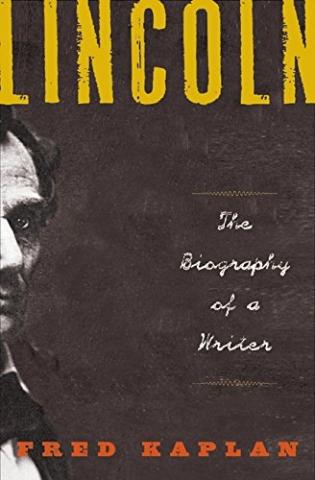The 200th anniversary of Lincoln’s birth began with a bang. Given the historic ascension and rise of the first African American to the presidency of the United States, Lincoln’s relevancy is perhaps more essential today than ever before.
By placing his hand upon the Lincoln Bible, Barack Obama, in effect, promised to uphold the principles that guided Lincoln as he sought to eradicate perhaps the most incalculable injustice in American history. Our slave past, and its aftermath, from the rise of the KKK to Jim Crow to the Civil Rights Era of the 1950s and 60s, has looked toward Lincoln as a way to remind us that freedom is not easily earned nor easily kept.
Lincoln’s gravitas is etched so eloquently by a multitude of monuments that extends from coast to coast. The greatest, of course, is in Washington, DC. Who can forget Martin Luther King, Jr. on that hot August day in 1963 proclaim his “Dream” or Marian Anderson in 1939 defy the racist attitudes of the day by singing “We Shall Overcome.” The Lincoln Memorial, by virtue of the man, its history, and most especially the words that appear within the site, has become a place of serious and deliberate contemplation. Facing each other like grand citadels, the Gettysburg Address and Lincoln’s greatest speech of all, the Second Inaugural Address, echo loudly adding to Lincoln’s stature as a courageous politician forged by the power of exceptional literature.
Fred Kaplan, emeritus professor of English at Queens College and the Graduate Center of the City University of New York, has given us a gem of a book. Rather than recount Lincoln’s well known biography in a strict chronological narrative, Professor Kaplan instead provides a marvelous account of Lincoln as a determined reader, influenced by the intellectual ideas that informed his active and precocious mind.
Inevitably the story of Lincoln is couched by a boyhood love of books, those memorable and vivid images of reading on the farm, carrying the heavy burden of a family in peril yet dedicated to the Jeffersonian ideal in which education can serve to uplift even the most dreadful of circumstances. It’s American to the core, a determined point-of-view still in vogue and respected today.
But Professor Kaplan does something better, in that he provides a context to Lincoln’s reading life, a context divided by the essential moments of his biography. The unique structure of Professor Kaplan’s book and the strength of his research are evident by an ability to weave together the parallel lives of Lincoln as a struggling politician with that of his reading life. And often the two intertwine, as though Lincoln the man and Lincoln the reader are one in the same.
Nuanced by Shakespeare and especially the poetry of Robert Burns, Lincoln’s own character and his approach to politics can be seen as an internal struggle to reconcile great literature with the reality of antebellum America.
In deference to Professor Kaplan, however, he imposes a rigid discipline on making too much of Lincoln’s voracious habits. His keen academic instincts are far too savvy to capitulate to such foolish notions that Lincoln struggled to find his own voice beyond the written page. Literature served to loosely structure his life around a set of values that found expression in a variety of personal and public endeavors.
And for the most part Lincoln found what he was looking for in books, a way in which to manage a life that consistently struggled to find balance between a growing political ambition and that of his working–class background. On a more practical level, Lincoln found solace in the physical pleasure of reading as well. His documented battle with melancholy, in Professor Kaplan’s opinion, was treated by long bouts of solitary reading, confined to places of his own choosing. This was Lincoln’s way to escape his turbulent home life, a means by which to calm his fraying nerves.
The book takes an interesting turn just before and immediately after he assumes the presidency in 1861. Naturally, of course, Lincoln’s whole world is shaken to the core with the onset of secession. The entire country for that matter, despite ten years of constant talk, was suddenly confronted by the most daunting challenge ever to face the Union. Up to this point, Professor Kaplan is running parallels, tracing Lincoln’s reading regime with that of his life and works.
As a reader, you feel connected to Lincoln at a basic human level as though you could predict his next move by what he was reading. During the Civil War, however, the parallel vanishes, sequestered beneath the enormous task of war and unmitigated brutality. Professor Kaplan is ambivalent to assign any specific cause and effect as to why Lincoln aborts a determined commitment to literature, but you sense that words, even the most profound, can’t make sense of, or find expression, in this ghoulish period of American history.
Still, the essential contribution of Lincoln: The Biography of a Writer is to substantiate a common understanding of Lincoln as a self-taught intellect who maintains over the course of 50 years a rich and thoughtful relationship with the great works of western civilization. The power of literacy to move the world, to shape a life, and to vault this seemingly obscure person from the lonely fields of Kentucky, Indiana, and Illinois to the presidency of the United States, couldn’t be more evident today, as we embrace the strange but equally profound reality of the Obama administration.








Comments
Good job, Jeff. Now that 16,000 Lincoln books have been written, it's getting kind of tough to know whether number 16,001 or 16,002 have anything new to tell us about this complex man. Your review of Kaplan's book encourages me to read it, and I thank you for that.